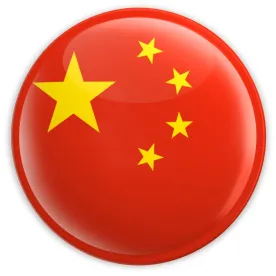Despite some significant policy changes at the U.S. Department of Justice (DOJ) instituted in the early months of the Biden administration, one key legal thread that remains a holdover from the prior administration appears to be the DOJ’s so-called “China Initiative.”
The Trump administration launched the China Initiative in late 2018 to “identify priority Chinese trade theft cases, ensure that we have enough resources dedicated to them, and make sure that we bring them to an appropriate conclusion quickly and effectively.” The policy was part of an apparent trend of increased consideration by federal prosecutors and law enforcement to investigate and bring cases of trade secret theft that previously might have been viewed as best resolved through civil litigation.
According to DOJ’s website, last updated in May 2021, DOJ’s “China Initiative reflects the strategic priority of countering Chinese national security threats and reinforces the President’s overall national security strategy.” Underlying this focus, DOJ claims that “[a]bout 80 percent of all economic espionage prosecutions [by DOJ] … allege conduct that would benefit the Chinese state, and there is at least some nexus to China in around 60 percent of all trade secret theft cases.”
The China Initiative is under the direction of DOJ’s National Security Division (NSD), which is responsible for investigating and responding to state-actor threats to the United States. It is part of Assistant Attorney General John Demers’s portfolio, who was appointed to his role leading the NSD in 2018. Demers, who previously worked at DOJ during the latter portion of the Bush administration, has remained in his position into the Biden administration. Just before the president’s inauguration in January 2021, Demers credited the China Initiative with success in prosecuting cases of “economic espionage [and] theft of intellectual property.” He noted that the DOJ’s work through the China Initiative had bipartisan support and hoped to see a continuation of the efforts in the Biden administration. Six months into the Biden administration, that appears to be the case.
Already in 2021, DOJ has announced several new prosecutions under the China Initiative, as well as some significant convictions and sentences. For example, in February 2021, DOJ announced that a Chinese national residing in Hong Kong was indicted for conspiring to steal trade secrets from a prominent American manufacturer regarding the company’s silicon carbonite technology. The case, filed in New York, was the result of an FBI investigation, including its counterintelligence unit, as well as the NSD and the United States Attorney’s Office for the Northern District of New York. In announcing the charges, Assistant Attorney General Demers stated: “[t]heft of American intellectual property for the benefit of foreign firms deprives American companies of the fruits of their creativity and American workers of their jobs. The Department will do all it can to disrupt this illegal and economically destructive conduct.”
More recently, in April 2021, following a 12-day jury trial, the DOJ announced the conviction of a Tennessee man for conspiracy to steal trade secrets, economic espionage, and wire fraud. The defendant had been originally charged in 2019 with trade secret theft, and new charges of economic espionage relating to the alleged involvement of Chinese governmental entities were added in 2020. DOJ had alleged that the defendant “stole valuable trade secrets related to formulations for bisphenol-A-free (BPA-free) coatings for the inside of beverage cans … to set up a new BPA-free coating company in China,” and that the defendant “and her Chinese corporate partner . . . received millions of dollars in Chinese government grants to support the new company.”
DOJ also announced in April 2021 that an Ohio man was sentenced to 33 months in prison for “conspiring to steal exosome-related trade secrets concerning the research, identification, and treatment of a range of pediatric medical conditions,” and his wife was sentenced to 30 months in February 2021 as part of the same scheme. DOJ alleged that the couple “started a company in China to sell the kits” based on the stolen trade secrets and that they “received benefits from the Chinese government, including the State Administration of Foreign Expert Affairs and the National Natural Science Foundation of China.” In announcing these sentences, Assistant Attorney General Demers stated that “[t]his successful prosecution should serve as a warning to anyone who seeks to profit from pilfering hard-earned U.S. trade secrets.”
These recent developments come on the heels of similar charges under the China Initiative, which also include criminal cases filed for visa fraud, grant fraud, export control violations, and allegations of obstruction of justice, among others. Since the creation of the China Initiative in late 2018, DOJ has brought over a dozen prosecutions of economic espionage, trade secret theft, or other federal charges. These cases are in addition to several other notable DOJ criminal prosecutions of trade secret theft that were not part of the China Initiative, and include criminal cases being filed after the commencement of civil litigation involving the same defendants.
At the same time, Congress has been active in 2021 combatting perceived efforts by some in China to illegally obtain intellectual property of U.S.-based companies or institutions. For example, on June 8, 2021, the Senate passed bi-partisan legislation called the U.S. Innovation and Competition Act of 2021, that among other things, if enacted, would require the State Department, in consultation with the DOJ, the Commerce Department, the Office of the U.S. Trade Representative, and the Director of National Intelligence, to develop a list of Chinese state-owned enterprises that have benefitted from intellectual property theft; would allow the State Department to determine aliens are inadmissible for entry by considering if their employer is involved theft of intellectual property; and would require the Treasury Department, in evaluating whether a Chinese company listed on U.S. exchanges poses an unreasonable risk to U.S. capital markets, to consider whether the entity has “engaged in an act or a series of acts of intellectual property theft.” Other bills have been proposed in the Senate and the House of Representatives with even more stringent requirements to federal agencies or penalties in response to incidents of alleged trade secret theft by individuals or entities associated with Chinese-owned companies or the Chinese government.
With the DOJ charging new defendants and achieving successes in convictions and the imposition of significant sentences under the China Initiative in 2021, there is a strong indication that the DOJ under the Biden administration will continue to investigate and criminally prosecute alleged trade secret and economic espionage by companies and individuals that are believed to have support of Chinese governmental institutions.
Consequently, those who believe they are victims of trade secret theft by actors linked to China may, in addition to civil litigation, find a receptive audience with the DOJ, both at the National Security Division at Main Justice in Washington, D.C. as well as at local United States Attorney’s Offices, and may consider early notification to law enforcement such as the FBI upon discovery of possible trade secret theft. Meanwhile, individuals or companies associated with China who find themselves accused of trade secret theft may be well-served to take seriously the possibility of a criminal investigation or prosecution by the DOJ, even after the commencement of civil litigation, and to act accordingly given the substantial criminal penalties available under federal law. Regardless, it appears that the China Initiative will be a part of the DOJ’s focus for the foreseeable future.



 />i
/>i

